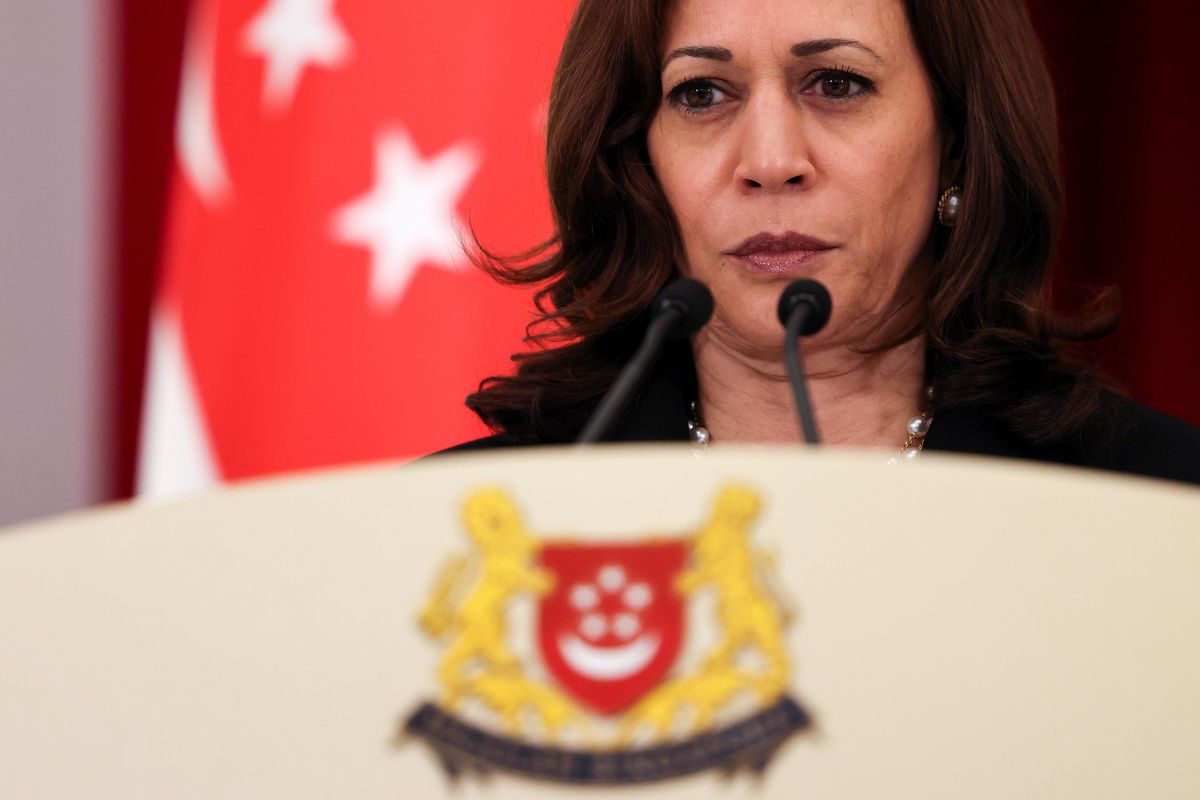Harris' Southeast Asia tour overshadowed by... Afghanistan: It's been a bad week and a half for the Biden administration, which has gotten terrible PR over its disastrous withdrawal from Afghanistan. But Vice President Kamala Harris is trying to flip the script a bit on a current, week-long tour of Southeast Asia. The main aim of the Veep's visit to Singapore and Vietnam is to shore up relations with Asian partners as a bulwark against an increasingly aggressive China, and to emphasize the Biden administration's "pivot" to the Indo-Pacific region more broadly. That's particularly true in Vietnam, which is extremely concerned about China's behavior in the disputed South China Sea. But when Harris held a press conference with Singapore's PM Lee Hsien Loong Monday, hoping to highlight new cooperation on climate change, cyber security, and COVID tracking, she was instead peppered with questions about violence at Kabul's airport and the administration's so-far botched evacuation plans for Americans there.
FDA approves Pfizer jab, will skeptics roll up their sleeves? The US Food and Drug Administration on Monday granted full, formal approval to Pfizer's COVID vaccine, for people 16 and older. Until now, the vaccine has enjoyed only emergency use approval. The difference, in case you are wondering, is that formal approval is based on a larger and longer-term data set. According to Pfizer's numbers, the vaccine is 91 percent effective at preventing severe infections. The FDA's designation opens the way for schools, the military, and other employers to require vaccination against COVID-19 just as they already do for other diseases — including measles, polio, hepatitis — for which there are formally approved vaccines. A big question is whether the FDA move will dent persistent vaccine hesitancy in the US, where only 52 percent of the population is fully vaccinated. A June poll by the Kaiser Family Foundation showed that about a third of unvaccinated adults said they'd get the jab once it received full FDA approval. Well, now it has — let's see what they do.
Qatar elections, better late than never: The small, gas-rich gulf kingdom will hold its first legislative elections ever, when Qataris vote to fill two-thirds of the 45-seat Shura Council on October 2. The remaining 15 seats will continue to be hand-picked by the Emir. The move has been a long time coming: it was 18 years ago that Qataris voted in a referendum to approve a new constitution that called for legislative elections of this kind. The Shura Council's powers are limited, particularly on key issues of defense, foreign policy, and economic policy, but the move is a step forward for democratic representation in a region of repressive monarchies. Nearby Kuwait is currently the only Gulf Arab state that has given much power to a popularly-elected legislature, and it hasn't always gone well. Still, Qatar's Emir, Sheikh Tamim bin Hamad al Thani is looking to burnish his forward-looking bonafides ahead of all the attention his country will get during the 2022 FIFA World Cup.


















